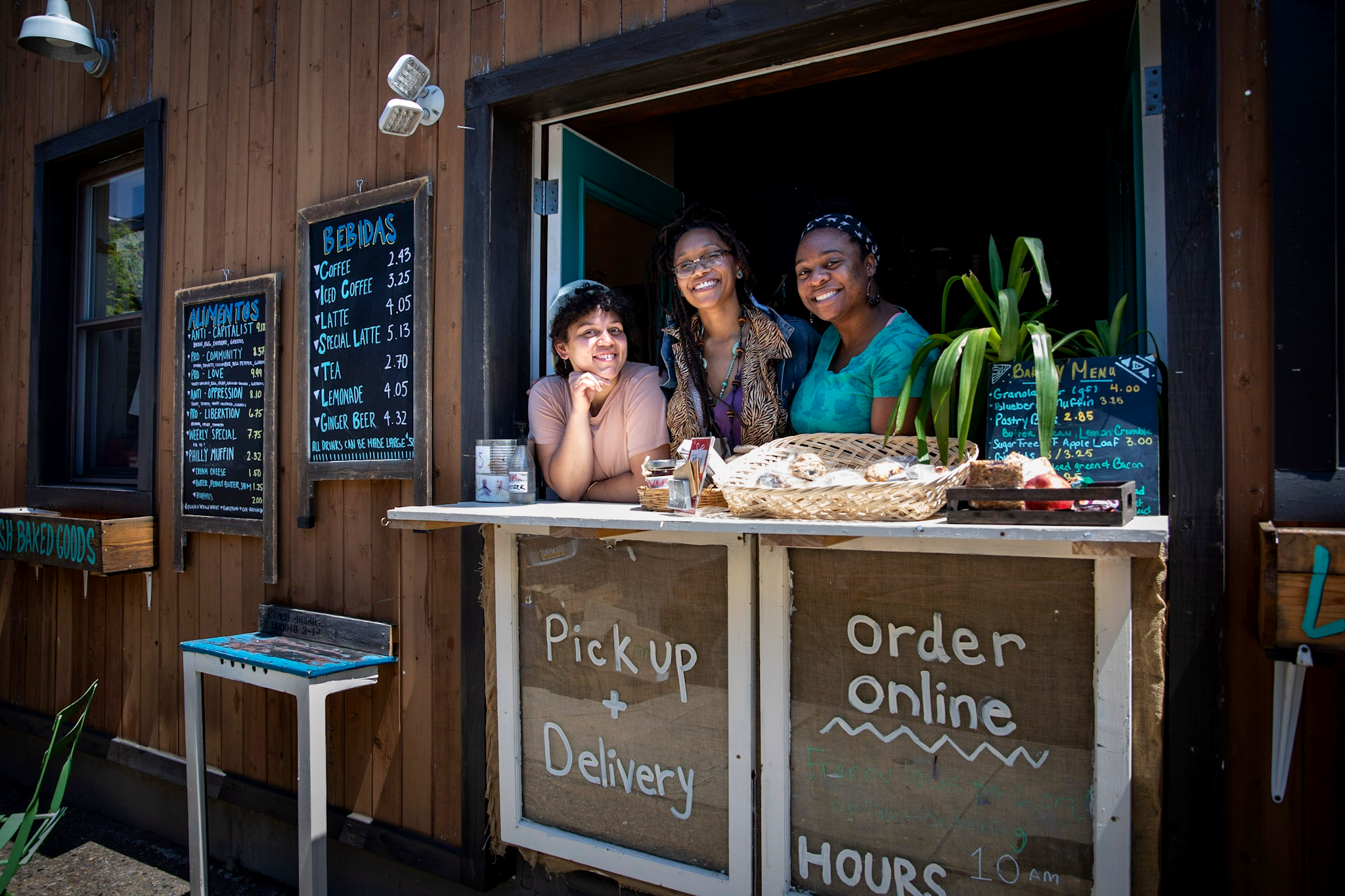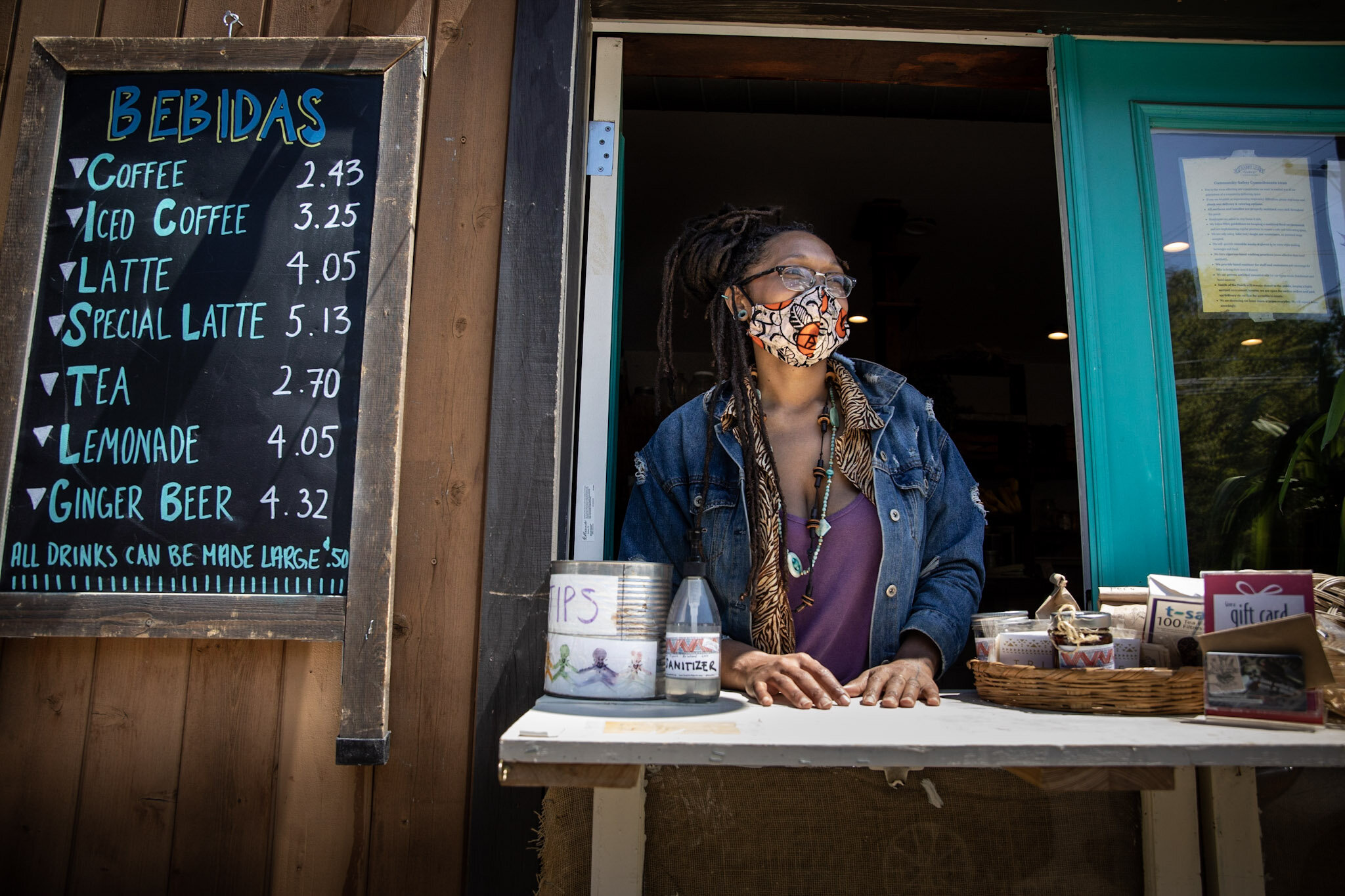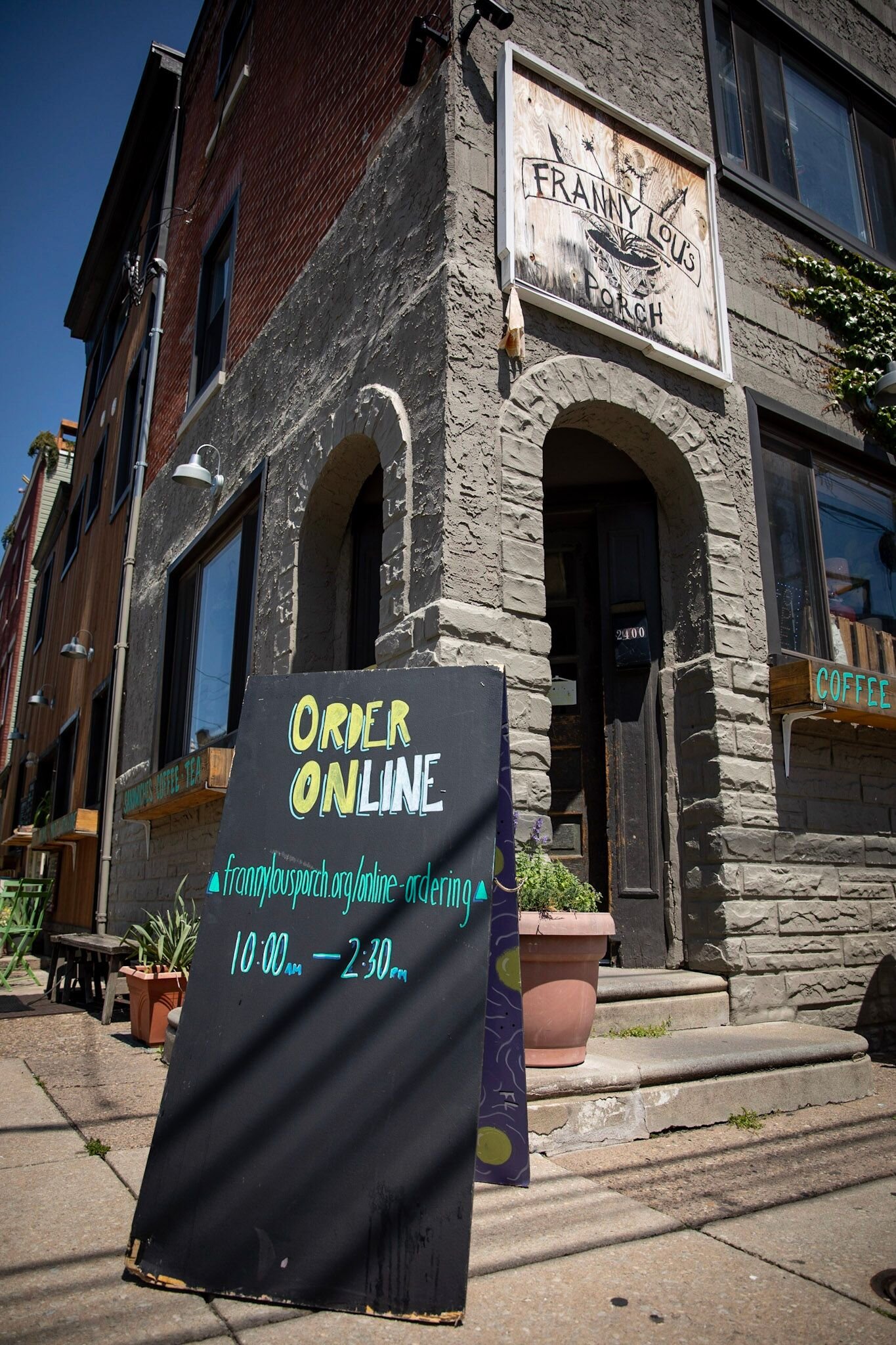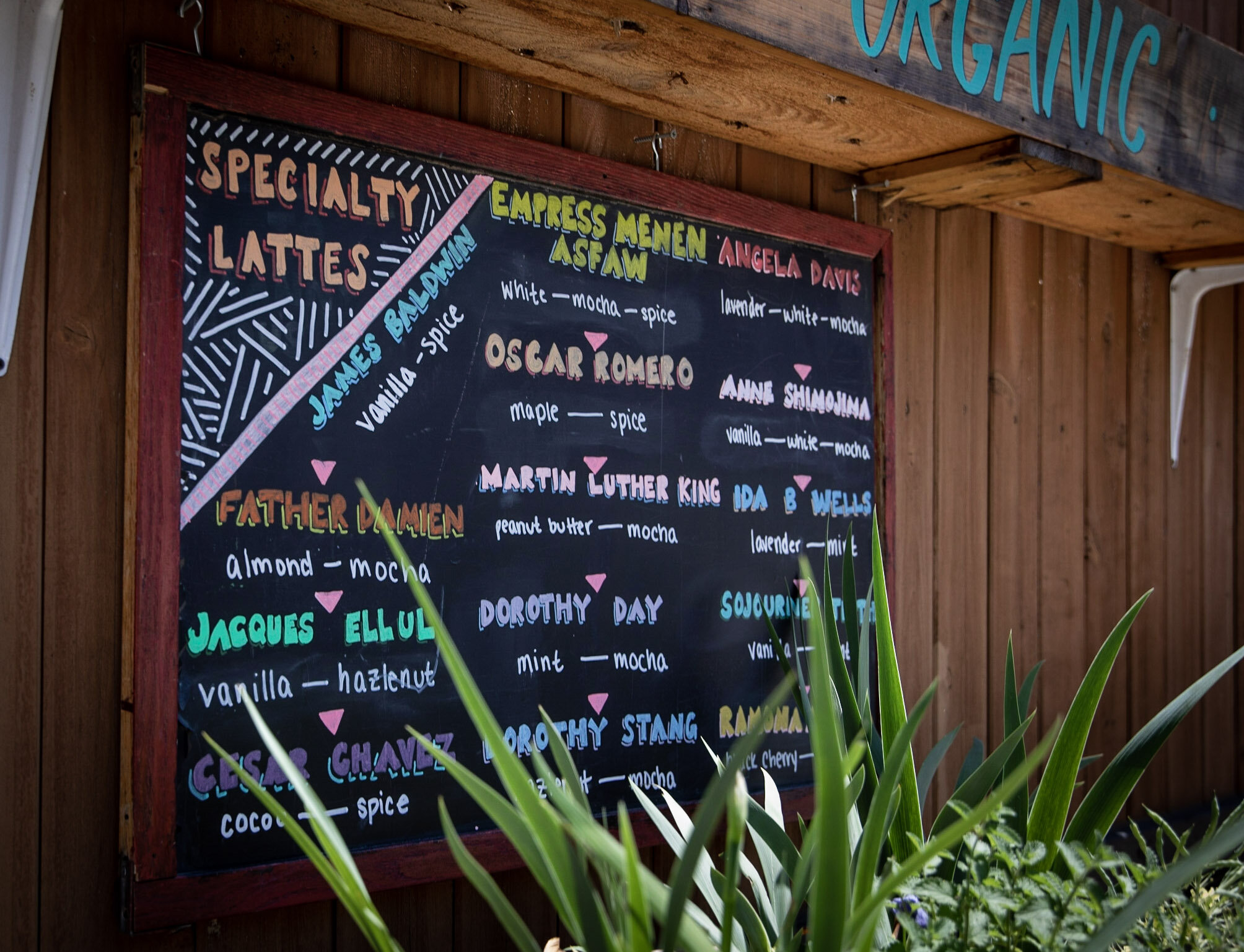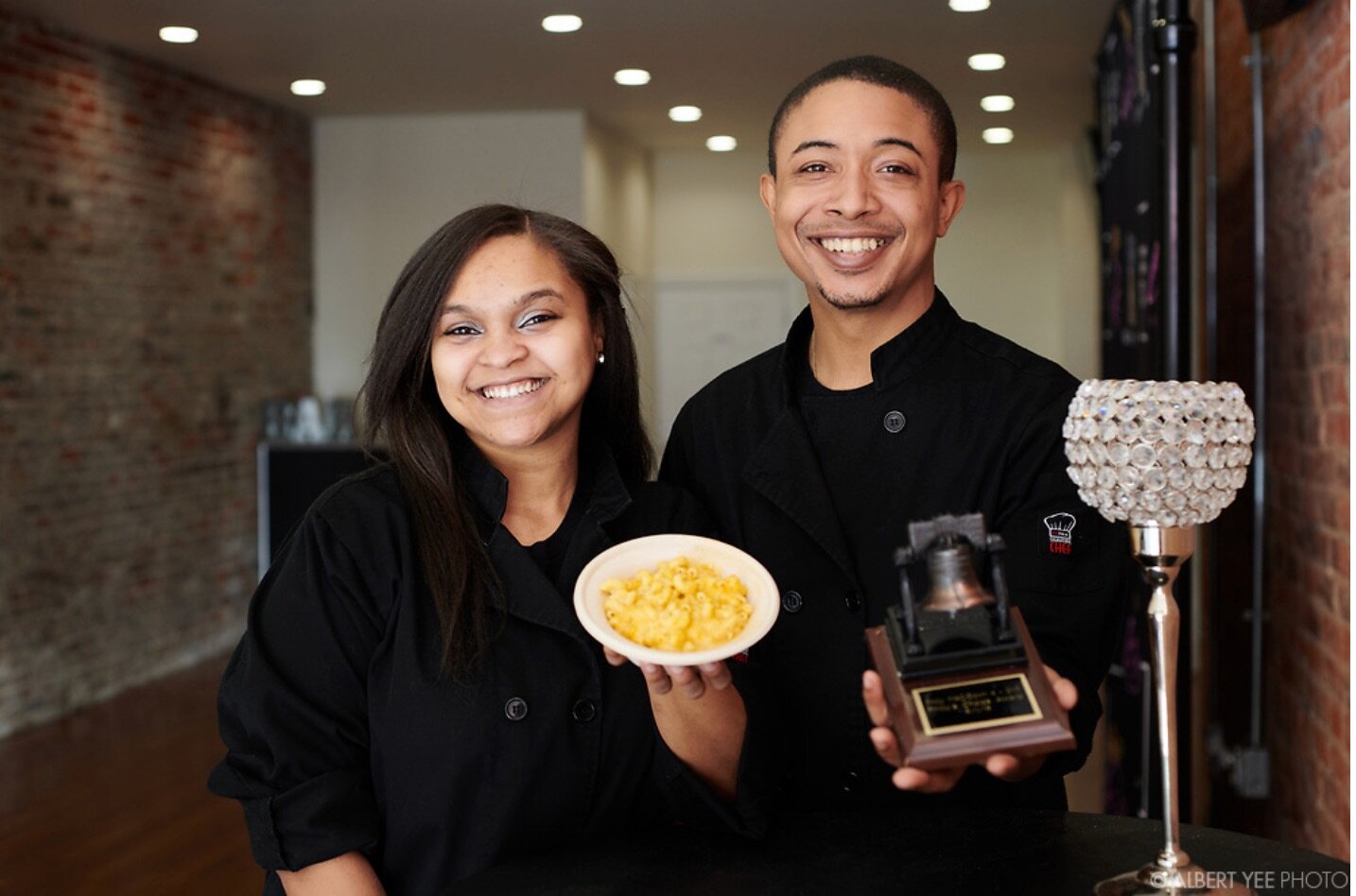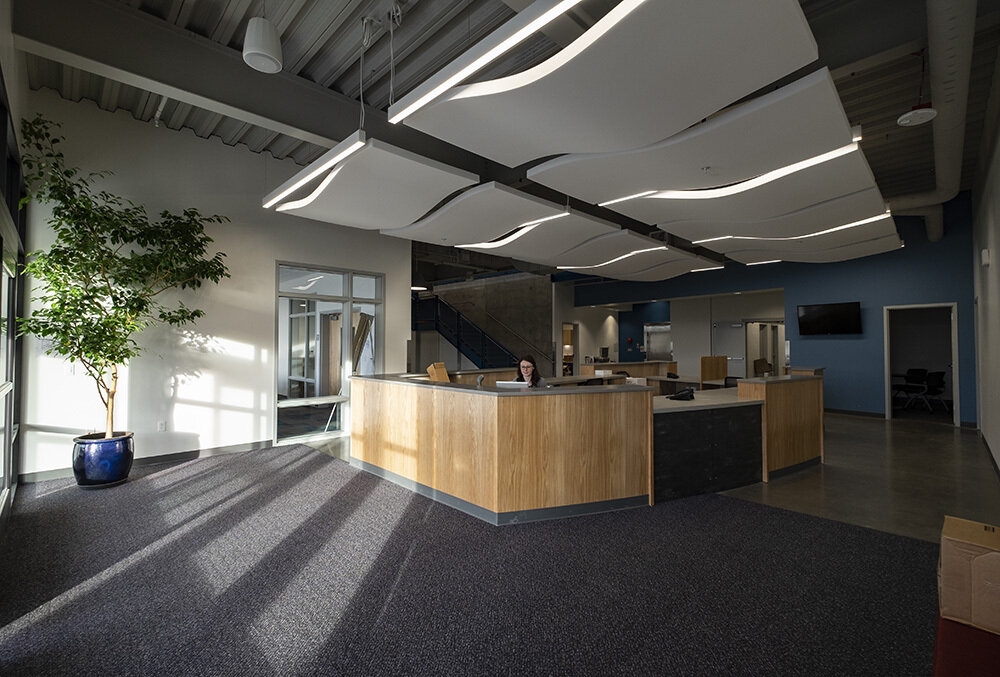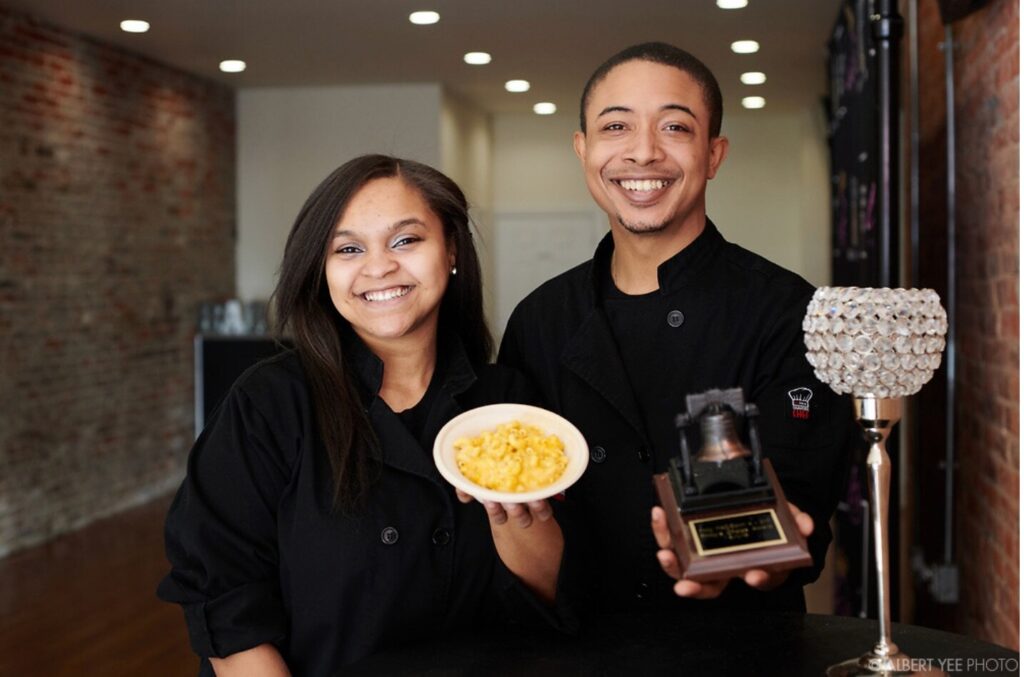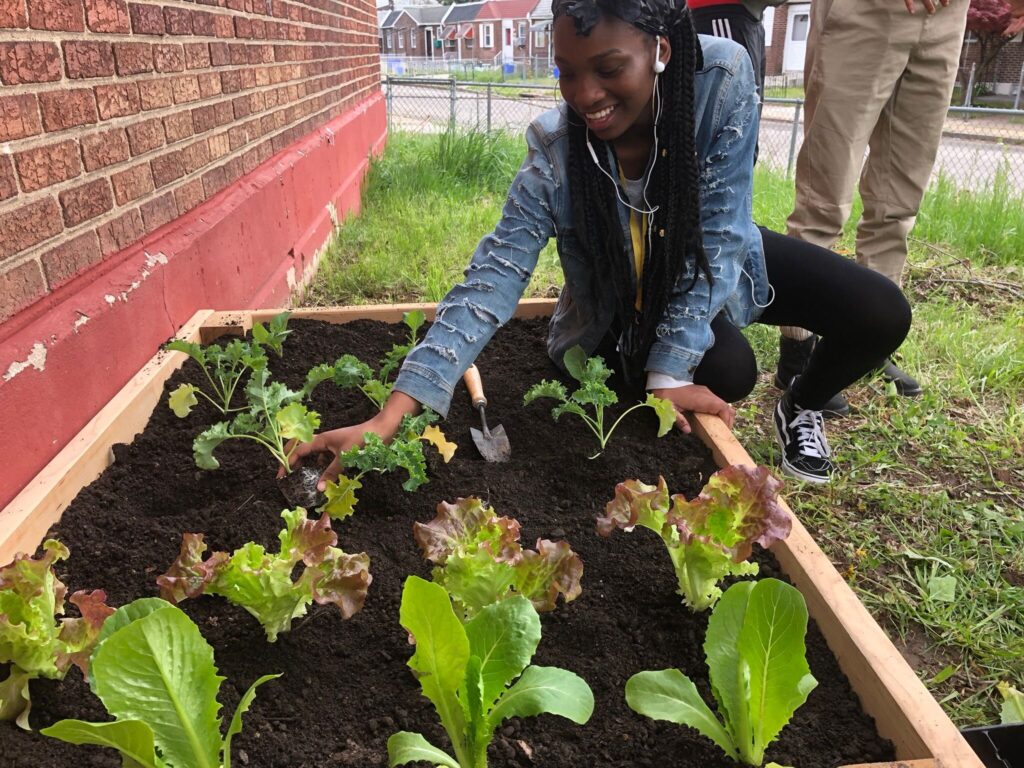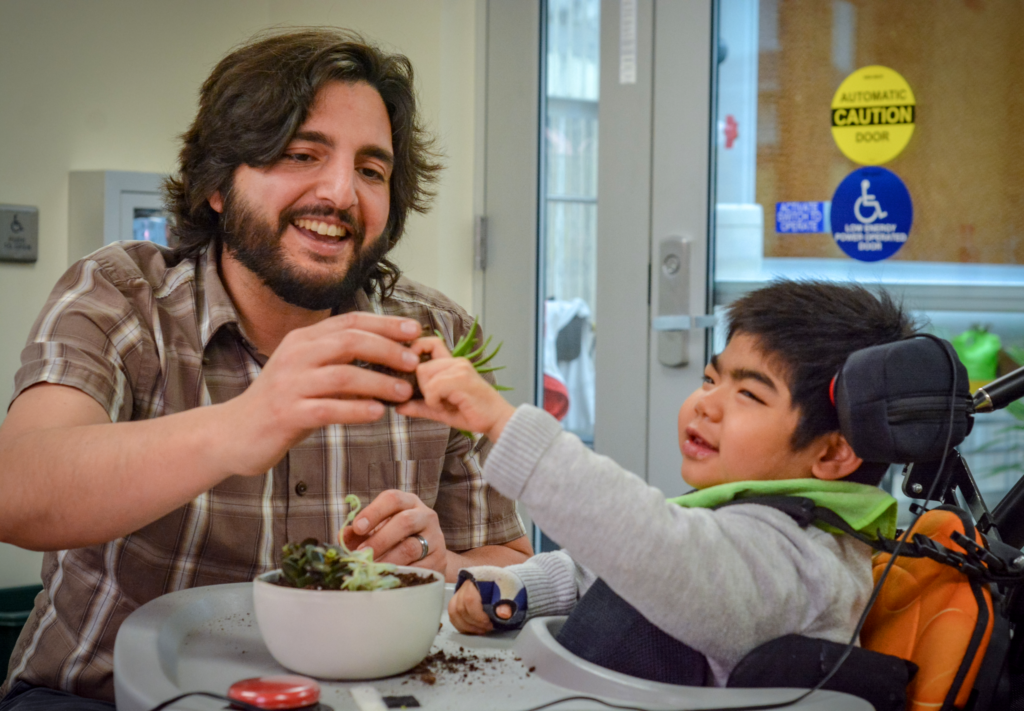Photography by Rachael Warriner
Ancestral Energy
By Constance Garcia-Barrio
Franny lou’s porch is still rustling up recipes to sustain the community despite COVID–19. The East Kensington café is known for concocting beverages like Thank God for the Children, a locally sourced blend of calendula, elder, chamomile and hibiscus tea, and sandwiches like The Pro-love, with turkey sausage, egg, grilled onions, cheddar and fresh greens served on focaccia.
“My basic passion is hospitality and bringing people together,” says Blew Kind, 32, of Germantown, the café’s owner.
“I want a space where Black and Brown people, queer people and other marginalized folks feel comfortable,” says Kind, who opened Franny Lou’s at 2400 Coral Street in 2015. The café has comfy chairs, plants aplenty and bold colors, “like an Afro-futuristic Black grandma’s living room set in the South,” Kind says. “It’s a warm space to engage in community activism and to rest.”
Kind, who came to Philly from her native Lorton, Virginia, in 2006 to study acting at the University of the Arts, not only serves tasty fare but condiments it with Black history.
The café’s name honors author and abolitionist Frances E.W. Harper (1825–1911)—who helped bondmen fleeing to Canada on the Underground Railroad and wore Free Labor clothes, made with cotton raised by paid, not enslaved, workers—and voting rights activist Fannie Lou Hamer (1917–1977), co-founder of the Mississippi Freedom Democratic Party, who sustained permanent eye, leg and kidney damage when beaten by police for trying to vote.
Patrons also drink up history with their beverages.
Jacelyn Blank, 42, a regular at the café says her favorite drinks are the hazelnut mocha Dorothy Stang (1931–2005), named after a Catholic nun murdered in Brazil for defending the Amazon, the peanut butter mocha MLK, and the almond-and-chocolate Father Damian (1840–1889), named after a Catholic priest who cared for people with leprosy in Hawaii.
Original names, like “the Anti-capitalist,” distinguish the sandwiches, as does the fresh, organic produce in them. The ingredients come from local farms as well as places like Bartram’s Garden and Greensgrow, an urban farm at 1400 Frankford Avenue. Some partnerships go beyond commercial.
“Blew and I may do a nutrition workshop together,” says Meg DeBrito, 38, director of Greensgrow.
Besides the wholesome food, a kaleidoscope of workshops pull in different sectors of the community. In February, before the pandemic lockdown, Kind, a poet, offered the Love Poetry Workshop “to help us tap into our imagination to use love poems to ourselves and others to heal past trauma.”
A Black History Month Vending Village brought together artisans, businesses and potential customers of African heritage. Family days, events for elders, a First Saturday discount of 10 percent for anyone wishing to hold an event in the space, and other special occasions helped bring in a racial and cultural mix of neighbors—no mean feat in this fast-gentrifying area.
When COVID–19 struck, in one respect, it meant little change.
“We’ve always had safe practices to protect our customers,” Kind says. “Three of my employees already had ServSafe certification,” she says, of the program that trains food handlers in protecting food. “We already observed handwashing and sanitation practices to prevent food-borne disease. We started making our own sanitizer with essential oils, vinegar and peroxide when COVID–19 hit.”
But the city’s abrupt standstill slammed the café in other ways.
“Our profits dropped 80 percent at first,” says the pastry chef Ashley Huston, 29, who bikes to work from West Philly due to SEPTA’s service cutbacks. “We weren’t sure we could stay open.”
However, Franny Lou’s rolled with the punches.
“We’re an essential business, so we could stay open,” Kind says. “We opened a take-out window, and business has slowly, steadily climbed.”
The community is showing its support too.
“People have been so gracious with tips,” Huston says, “but we’re taking things week by week.”
Huston has also come up with creations to lure patrons. “There’s the cornbread cookie [$1.85], made with organic flour and honey. The flavor is familiar to Black people, and they like it. There’s the cherry blossom shortbread [$1.85], and a new biscuit made with collard greens and bacon for $3.50.”
With the café’s physical space unavailable due to health guidelines, Kind has found ways to go on reaching the community.
“With every purchase, we give out a newsletter with inspirational quotes,” she says. “It might say, ‘Peace and blessings to you and your family.’ ”
Sometimes, she pulls in ancestor energy by quoting people who’ve faced and overcome adversity. Words from Sojourner Truth (1797–1883), for example, provide a bulwark in these uncertain days: “I feel safe in the midst of my enemies, for the truth is all powerful and will prevail.”
“We’ve also established a YouTube channel and use Instagram Live to communicate our values and educate folks on healthy and aware lifestyles,” Kind says.
Neighbors seem to realize that they can seek not only food but emotional sustenance at Franny Lou’s Porch.
“One day, a man called up not to order food, but to talk with me because he felt isolated,” Kind says. “He believed I would listen, and I did.”
Although Blank can’t enter the café, it still anchors her.
“Blew lets me putter around in the side yard and show off my horticultural know-how with the planters and window boxes,” says Blank, a certified arborist. “I’m grateful for a sense of normalcy, to be able to see Blew and ‘the tribe’ on a continued regular basis. I love their ability to adapt and re-imagine how the coffee shop can operate even though we can’t go inside.”
Kind also responds to the financial distress that has pushed some families to the brink.
“We linked up with a program to give out free meals to families,” she says. “Thirty meals a day is the initial goal.”
Kind acknowledges the uncertainty of these times, but sees it as a potent reason to have faith and go forward. “Lots of people are having a hard time,” she says. “The light of Franny Lou’s Porch is needed now more than ever”.

